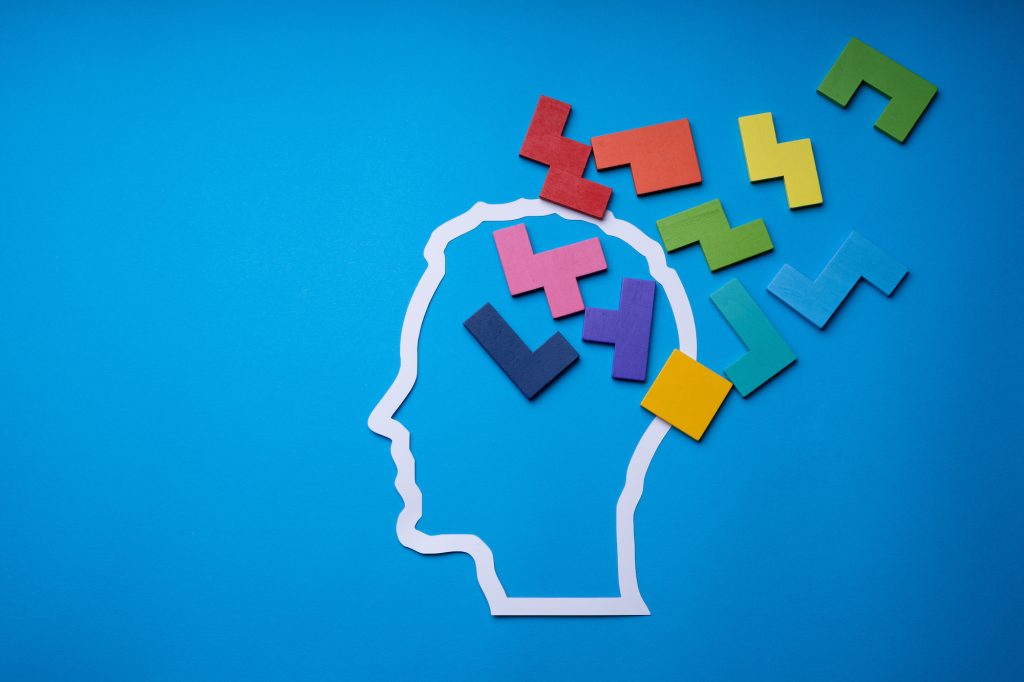ADHD, Women, And Work: A Personal Story
RECRUITMENT • Aug 1, 2022

Attention-Deficit Hyperactivity Disorder, or ADHD, is a behavioural disorder that can cause restlessness, a lack of concentration, and impulsivity. Most commonly detected in childhood, it’s present in around 1 in 20 of the population, and is more commonly diagnosed in boys than girls. However, just like autism, some experts claim that the reason ADHD is diagnosed less frequently in girls is because it presents differently, and that specialists rely on ‘outdated stereotypes’ to make a diagnosis. This has led experts to estimate that 50 to 70% of women with ADHD aged 18-65 in the UK remain undiagnosed, which can trigger a host of health issues such as anxiety and depression, and harbour significant consequences for both personal and professional life. To discuss this topic in more depth, we spoke with Gleeson’s HR and operations director Suzie Hughes, who was diagnosed with ADHD at the age of 44.
A lightbulb moment
Discussing the time before her diagnosis, Suzie tells us, “I’d suffered with my mental health for years, and I’d been told I was suffering from anxiety and depression, even though I never felt depressed. Being given that diagnosis just never felt quite right.” Suzie’s experience is common; many other women have also described being diagnosed with mental health conditions when they were actually suffering from ADHD. This is largely because both can manifest in similar ways, with symptoms such as low self-esteem, impulsive behaviour, and underperformance at school or work. Additionally, anxiety and ADHD often co-exist, with both conditions feeding into one another. However, Suzie remembers the time she realised she might have ADHD: “In 2018, my son Henry was diagnosed. I became an avid reader of books and articles about the condition, so I could figure out how best to help him. I remember in 2019 we were driving back from a family holiday in Devon, and I was passing the time as a passenger by reading some facts about it to my husband, Richard. There was a sudden lightbulb moment and Richard said, “That describes you to a tee!” I was thinking the exact same thing reading it.”
Getting a diagnosis
Even when women like Suzie eventually realise that ADHD may be at the root of their problems, pursuing a diagnosis is not always easy. The NHS is facing unprecedented demand from women wishing to discuss the issue with their doctor, who are often dismissed and accused of “pursuing a trend”. Luckily, however, Suzie’s case was different. She explains, “I was really lucky, as we have a lot of support when it comes to ADHD because of my son. When I got home, I messaged his specialist, who agreed to talk with me further. He did an assessment and it was no surprise when he confirmed I have ADHD, and I’d been wrongly diagnosed with mental health issues for most of my adult life.”
“When I received my diagnosis, it was a real mixture of emotions. I felt a sense of sadness that I spent years thinking I was depressed and taking medication for a condition I didn’t have. But there was also a sense of camaraderie with my son – he’d felt different since his diagnosis and now felt that he had someone who understood him. In many ways, it brought us closer together.”
Masking and missed opportunities
Many women who receive a diagnosis of ADHD later in life describe pouring over the red flags they missed growing up – and wondering how different life could have been if they were diagnosed earlier. Suzie tells us, “I came to realise that in the past, I’d often miss cues as to when to stop talking in a conversation. I’d also continually start new tasks before finishing ones I’d already started. Everything made so much more sense after my diagnosis – my occasional social awkwardness, my fierce sense of right and wrong, my hate of unkindness, and my inability to stay still! However, I do wonder how my life would have been different if I’d received a diagnosis earlier, and received the help Henry is currently getting.”
Suzie also remembers the years she spent ‘masking’ her ADHD symptoms, a term used by specialists to describe the act of camouflaging their symptoms by copying the behaviours of others that don’t have it. She commented, “I’m what’s called a ‘masker’, which is usually a female trait, and another reason more boys than girls are diagnosed at a younger age. I’d spent my life perfecting this skill without realising.”
Surviving and thriving
It’s a fact that ADHD can sometimes have a negative impact on an individual’s personal and professional life if not managed properly. It can lead to behavioural issues such as irritability and a low frustration threshold, which can cause issues managing and maintaining relationships. In the workplace, it’s sometimes linked to reduced productivity, increased absenteeism, and a higher risk of accidents. However, something that’s too often overlooked is the positive attributes the condition also presents, which can be a bonus in the workplace. Suzie tells us, “My ADHD makes me who I am. I can multitask like a Tasmanian devil and I have no sense of fear, so I’m happy jumping into the unknown. In my job, these are good skills to have. After I was first diagnosed, for a while my ADHD became a burden because I was so hyper self-aware. I didn’t speak up when I normally would, and I was almost supressing a lot of the positive things about who I am. My close friends realised something was wrong, and they all reassured me they love me for who I am.”
Today, Suzie embraces her ADHD diagnosis, and believes more women should do the same. “So many women in today’s society often feel pressured to hold down a job, look after children, provide a good home environment, and be in a happy relationship. When you have ADHD, adopting and managing these roles can be so much more challenging, and society can be far less forgiving of women who struggle.”
Speaking of what more organisations need to be doing to support people with ADHD, Suzie commented, “We need to make sure that topics like neurodiversity aren’t taboo, and that employers understand the benefits that such conditions can actually have within the workplace, like new ideas and different opinions. I also think there needs to be more education on conditions like ADHD and autism, so that employers are able to make the right accommodations. When I told the Gleeson directors about my diagnosis they were so supportive and understanding, and that’s the experience everyone deserves.”
We want to break the stigma around women’s health and wellbeing in the workplace. To join the conversation, share your experiences and opinions using the hashtag #WomensWellnessAtWork.




